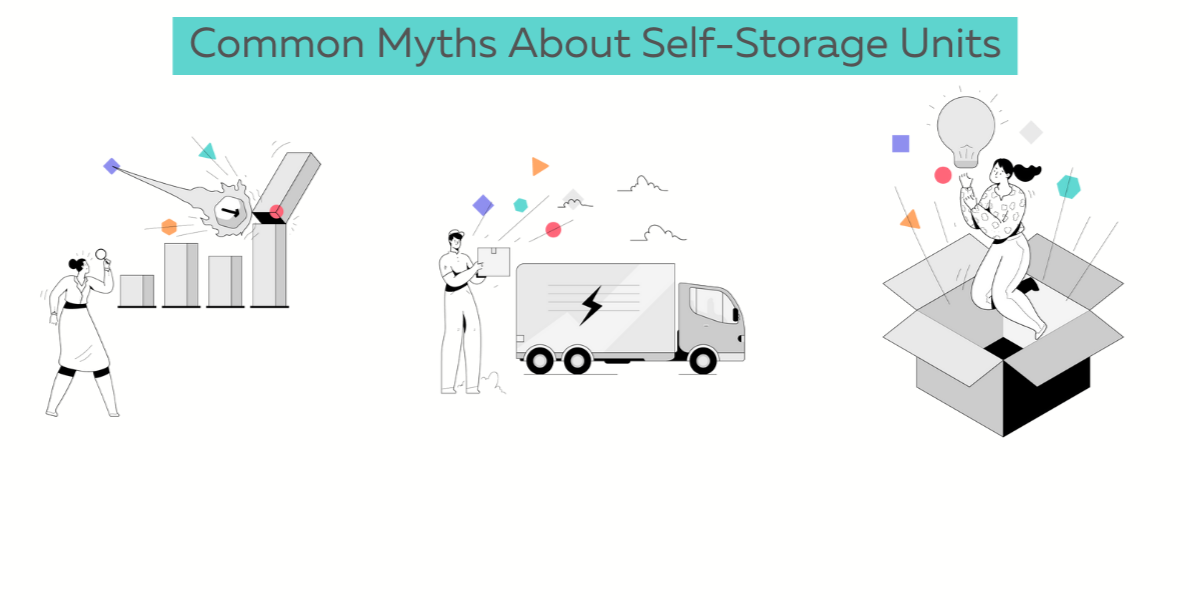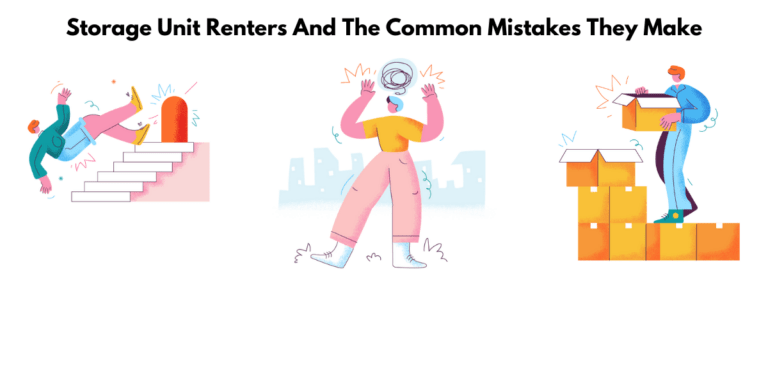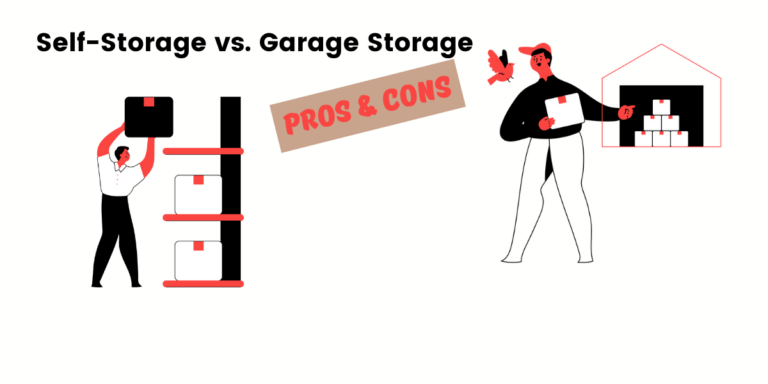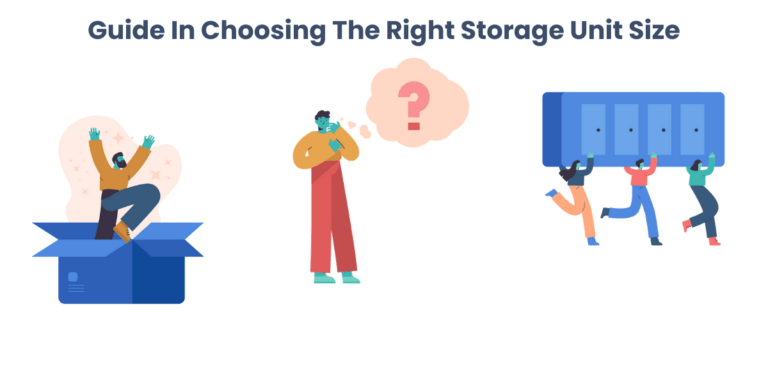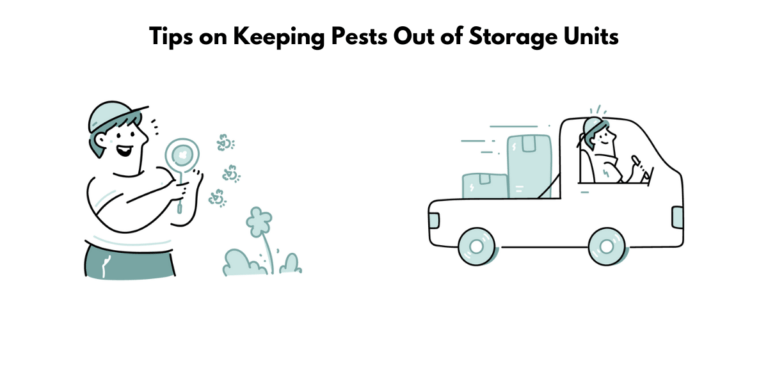Myths about Self-Storage Units: What You Need To Know
Common Facility Myths: The truth about self-storage units
The self-storage industry has been around since the late 1800s. One of the benefits of using a self-storage unit is that it can take good care of your belongings while you are away, but there are many myths about them that people often believe. We went to the source to debunk myths and find out what people really need when they’re looking for a self-storage unit.
Here’s what you need to know about self-storage units and the facts behind some common misconceptions.
What is a self-storage unit?
A self-storage unit is a building that houses the belongings of people who live in or visit an area for a limited amount of time. As such, it’s not meant to be used as permanent housing and instead serves as a temporary storage space for items like furniture and clothing.
Self-storage units are rented out by businesses and individuals for a period of time. They can also be purchased on an individual basis, but they tend to be more expensive than the ones that are not owned by the tenant. They have various features available, including climate control, security access, restrooms with showers or bathtubs, etcetera.
Self-storage units are becoming increasingly popular since they allow people to save money and take advantage of convenience such as 24/7 access and accessibility anywhere in the world.
A self-storage unit is a storage facility that provides secure, offsite on-demand access to items and has the capacity for multiple tenants. The word “self” in this case means it’s privately owned by an individual or company; its owner does not need to be affiliated with any other business entity.
This type of facility can make moving easier because all your possessions are stored outside of your home while you pack up and unpack at different stages during the process of moving into a new home.
The four key myths about self-storage units are that it is too expensive, messy, unsafe, or not secure enough for your valuables. The truth is the opposite of these claims because they can be very affordable and convenient to use as long as you know what type of facility you’re renting from before signing up for a contract with them.
Who needs a self-storage unit?
Self-storage units are typically found in big cities and towns, but they can also be used by people who want to store items like furniture or seasonal decorations. People use self-storage units for many different reasons, including storing belongings while moving into a new home.In addition to these circumstances, people have a variety of reasons for needing self-storage units. Self-storage is important because it provides safety from fire and theft, an option if you need space in your home or business inventory.Many people have misconceptions about self-storage units and the benefits that they provide. For example, some people believe that storing their items in a storage unit is equal to throwing them away or giving them upon them. However, this is not true at all as these units offer many benefits such as:
- Security and peace of mind – A storage unit provides protection for your belongings from thieves and natural disasters like fire or floods.
- Accessibility – Storage units are easily accessible for you and your family, especially if you live in a busy area.
- It’s an investment – With the rates that most self-storage units have, it is a smart decision to store your items at one of these facilities rather than try to sell them yourself or put them in a less secure place.
- Quality service – Storage units provide quality service from their staff members, making sure that all customers are happy with their experience
Self-storage units are designed to allow people to self-manage their extra items. They’re meant for convenience and reduced clutter, not as a permanent living space. There are many misconceptions about self-storage units that come from people who don’t know anything about the renting process. These myths can also be propagated by unfortunate experiences with the service, which is why it’s important to do your research before you decide on how to store your belongings.
If you need extra space for storage but in the fence, whether to rent a self-storage unit in a facility near you, keep reading as we debunk some of the most common self-storage unit-related myths to provide clarity.
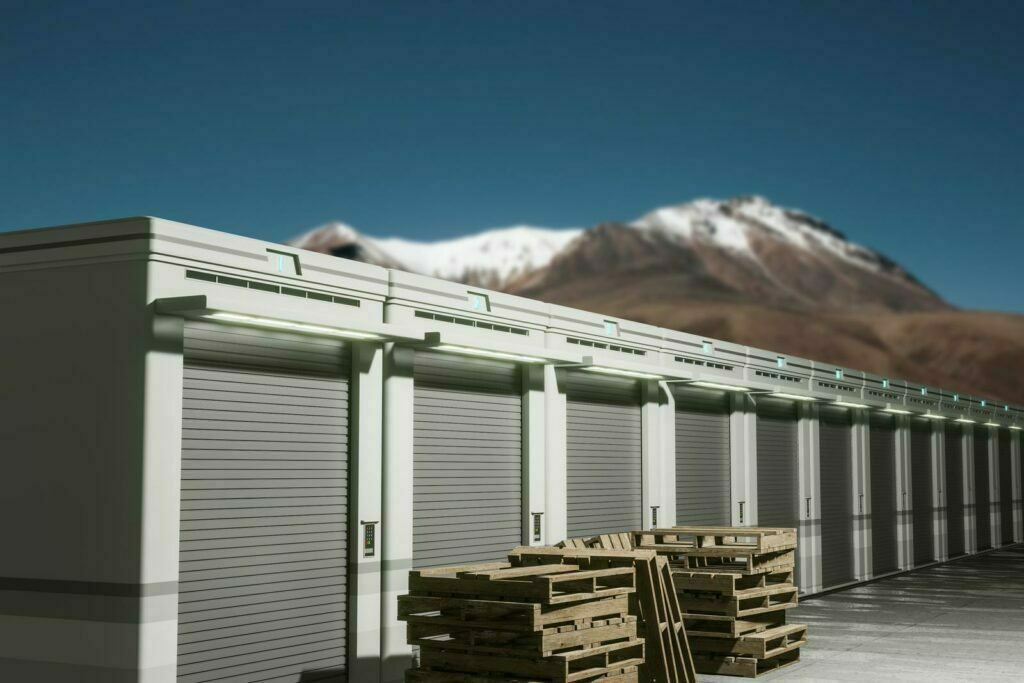
Myth 1: Storage facilities are for hoarders and people in transition
Storage units are not only for storing seasonal and outdoor gear but they can also be used to temporarily store items you no longer need. Self-storage has gained popularity in recent years due to the rise of reality TV shows featuring hoarders and people in transition. People think that self-storage is a place where people can hide their stuff, but this is untrue.
Most storage facilities aren’t designed to accommodate hoarding or hoards of possessions, but they can be used by anyone who needs temporary space. There is no way to tell if the unit you’re looking at will end up being a hoarder’s paradise or not- it could just as easily hold your family photos.
Storage units are not only used to store items but they’re also rented out to many different types of individuals depending on their needs. When you rent a storage unit, it’s important that you know what your reasons will be before making the decision because there may be additional costs involved if your reason changes or does not align with the company policy or type of facility needed by others who need space at any given time.
Myth 2: Storage units are expensive
The cost of a storage unit is determined by multiple factors, such as the size and location of the unit. You can find one that fits your budget. Getting a storage unit is inexpensive because it can be a cost-effective option depending on how valuable personal belongings are. There are many ways to save money when it comes time for self-storage, such as renting with an extended lease or using free spaces in the facility instead of paying extra fees.
In fact, reputable storage companies offer affordable prices in various sizes and can be found online or offline. The cheapest self-storage unit doesn’t have to break the bank because it’s a reflection of one’s budget and lifestyle choices. The misconception that these units are expensive is based on people thinking they’re only for rich people who want to store their valuable possessions without damaging them from dust or bugs. In contrast, others don’t need such extravagance when they could simply use a traditional storage unit.
According to the Consumer Self Storage Association, climate control units are quickly growing in popularity. This is due to their convenience and affordability. They do not technically require cooling or freezing because they use an AC/heating system that provides a constant temperature throughout the unit for storage purposes only; consequently, these units can cost less than traditional refrigerated storage spaces like walk-in freezers and coolers at certain facilities.
Storage unit rentals are a relatively cheap way to store belongings. In an ideal world, the units would be able to store anything and everything with no limitations whatsoever. Unfortunately, there are many restrictions on what can and cannot be stored in portable storage units that vary from state to state.
Myth 3: Storage facilities are unsafe
Self-storage units are not only safe, but they have 24/7 monitoring, CCTV cameras, smart locks, and round-the-clock manual surveillance. They also offer insurance coverage to provide added protection against any loss.
There are many reasons why it’s a good decision for you and your stuff – not just the safety of what’s inside but also convenience, affordability, location options, and payment methods.
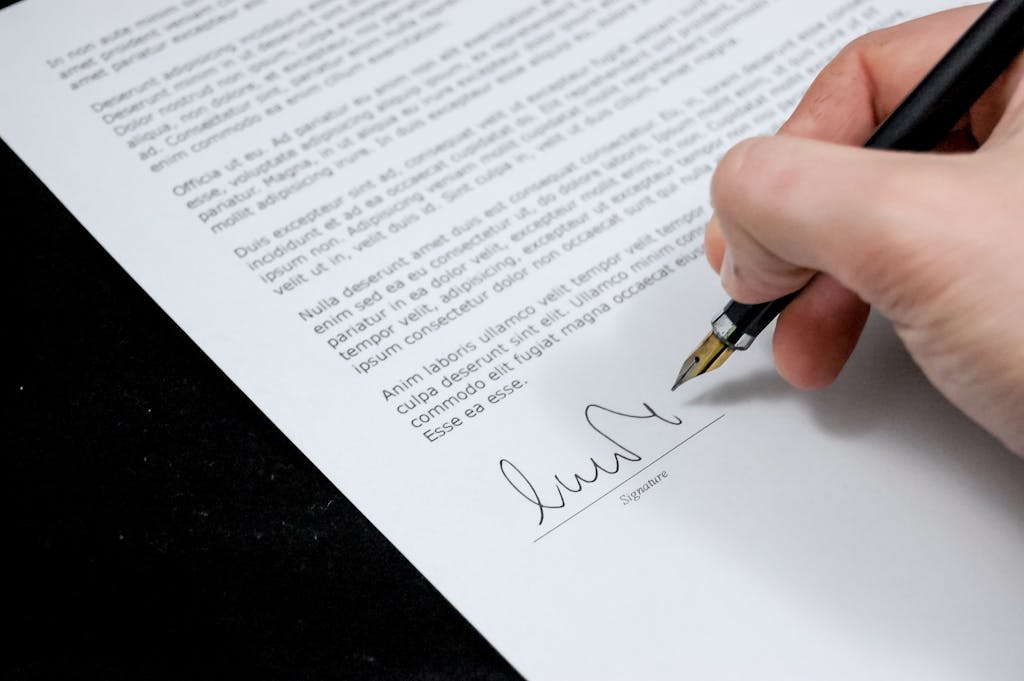
Myth 4: Storage facilities require a long-term commitment
The standard in the industry is for storage units to be rented on a month-to-month basis, with no contract required. The belief that storage facilities require long-term contracts is not true. Most people think of it as requiring a six-month contract and can actually be done on a short-term basis with no obligation to continue beyond the initial period.
In reality, storage facilities require a short-term commitment and can be used for temporary or long-term use. The units are often rented by the day, and people only need to commit to storing their items in them temporarily. It’s important to note that there isn’t any obligation on whether they will return it when needed as well, so if someone doesn’t want to continue with rental after one month, there aren’t any penalties involved either.
Myth 5: Climate control is unnecessary
Self-storage units can be either climate-controlled or not. However, climate control units do come with a number of benefits and advantages for the customer who wants to keep their items in the best condition for extended periods. The customer will save money on electricity because they only need to use it when the unit is running and also benefit from having an indoor temperature that never fluctuates as outdoor weather does.
This myth doesn’t take into account how the condition of a unit can drastically change when it’s in storage for an extended period of time with no outside access to air conditioning or heating.
On top of that, tenants should be aware that their rental agreement might not include any sort of warranty on the items stored by them since they are considered personal property and therefore aren’t covered under standard consumer protection regulations.
Myth 6: Storage units are dirty
Storage unit myths vary from place to place, but the most common myths include storage units being scary or weird people living in them, or they’re full of bugs. The truth is, the cleanest storage facilities have a professional staff of cleaners and regular maintenance to keep them looking fresh. Storage companies go to great lengths to keep their units clean and pest-free.
Myth 7: You have to commit to a storage unit for a long period of time
This is not true. Most self-storage units offer flexible terms, meaning that you can rent them on an hourly basis or monthly basis. Hollywood is the culprit behind this misconception, as it has led many people to believe that they must commit for years before moving out. Storage companies usually ask you to pay in advance, but they let you change your rental agreement at any time and can only charge for the space that’s needed. Most companies offer monthly leases, and you can cancel anytime if necessary.
Myth 8: You can store anything in a storage unit
While this is true, there are some items that you cannot store in a storage unit because of the laws and regulations put into place by the governing body. Some items not allowed to be stored are firearms, illegal substances, explosives, and hazardous materials such as gasoline or paint. A self-storage unit is not to be used as an extension of your freeze-dried food storage, and it cannot be used as a location of food preservation.
Storage guidelines are important to follow because these rules help protect both the tenant and the property, minimizing risk. If you need space for items that may be too large or heavy to move into your home, then renting a self-storage unit is an option worth considering.
When you’re looking to store items like furniture or clothing, make sure there aren’t any restrictions on your ability to do so and check if there is a fee associated with doing so as well. The idea of storing anything in a storage unit is not without its downsides. Items can endanger stored items and other units, so it’s important to keep them secured with proper locks or by using an alarm system.
In reality, storing frozen food, canned fruit, bottled water, animals, insects, plant life, anything that has an expiry date, and fuel is dangerous because it could cause harm to the other items in your facility. Chemicals/biological agents are also dangerous because they could cause harm to the other items in your facility. Stolen property and contraband would be more of a liability than an asset for any self-storage company that stores its customers’ belongings.

Myth 9: You can live/stay in the storage unit
The fact is, you cannot stay or sleep in any of our storage units. Please note that if you need to store items for an extended period of time, it’s best to use a commercial self-storage facility instead. There are a lot of myths about self-storage units. The idea that you can live or stay in one is just not true, and living there would be illegal under various laws.
Storage facilities must evict any person living on the premises to comply with the law. This includes family members, roommates, and even pets who are allowed to stay inside a rental without having their own units or cages of their own. The only exception would be if an individual had his or her space rented out as well, but it’s still important for them not to have any guests visit while they’re away from home.
The police had to evacuate many people from a storage unit because of health concerns. The units are often unsafe for living, and there have been cases where people have died in them. Authorities stress the importance of not residing illegally and mention living in an area not zoned for residential use is illegal.
Myth 10: You don’t need insurance for your unit
Self-storage facilities are often simple and ordinary, so it’s understandable to think that they wouldn’t require much protection. However, self-storage units do still have some properties that could be damaged or lost if not properly insured.
While there are instances when you might not need it, in general, self-storage units should be insured so that if the business is sued by a tenant or damages to property occur outside of their control, and they can cover any losses.
Why do I need insurance?
Storage units are not typically insured by the property owner, but you can purchase insurance to cover accidental damage. Self-storage facilities are safe and pest-free. Every day, people rent these rooms to store their belongings that they no longer need. Insurance is necessary in case of natural disasters or theft for the protection of your property because it offers peace of mind knowing that you will still have access to your items if something goes wrong with them.
If you want to make sure that your stuff is protected and secure, it would be wise for you to get insurance. As soon as the value of something goes up, people will start looking out for ways to protect their assets from being taken away from them by someone else. The need for insurance cannot be overstated. People should always consider the cost of full replacement value when buying a policy.
Myth 11: There’s a hidden treasure in abandoned storage units
This myth is false. There’s no hidden treasure in abandoned storage units, and the police will not release your personal property without a warrant. There very rarely are high-value items found in these types of places.
Myth 12: You can only access your unit when the facility is open
Many facilities have gated access, video surveillance, individual door alarms, and you can provide your own lock. This myth does not hold water as you can provide your own lock, have video surveillance and individual door alarms to protect against theft or break-in.
A storage facility might be closed for repairs during an emergency, but that doesn’t mean they’re inaccessible; it just means self-storage units are more secure than ever before with these security measures in place!
- Self-Storage 101: Is Living in a Storage Unit Legal? - February 28, 2022
- Myths about Self-Storage Units: What You Need To Know - November 10, 2021
- How to properly store books and keep them protected in a storage unit - October 19, 2021

